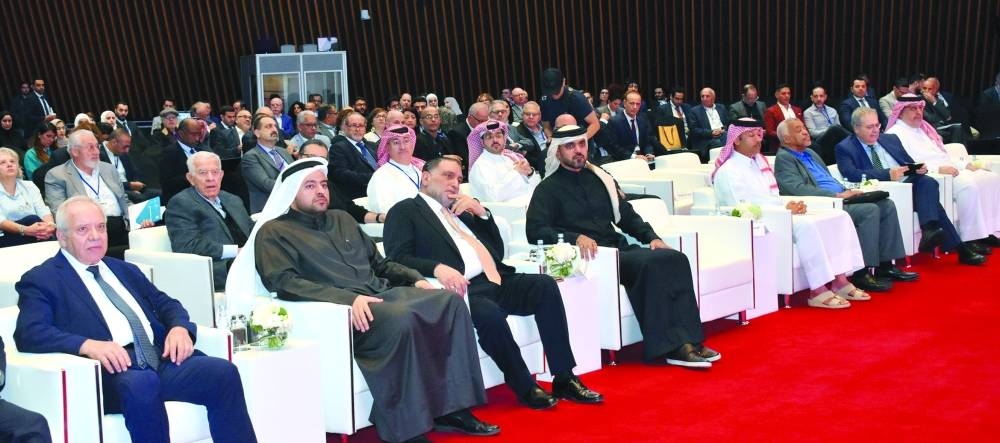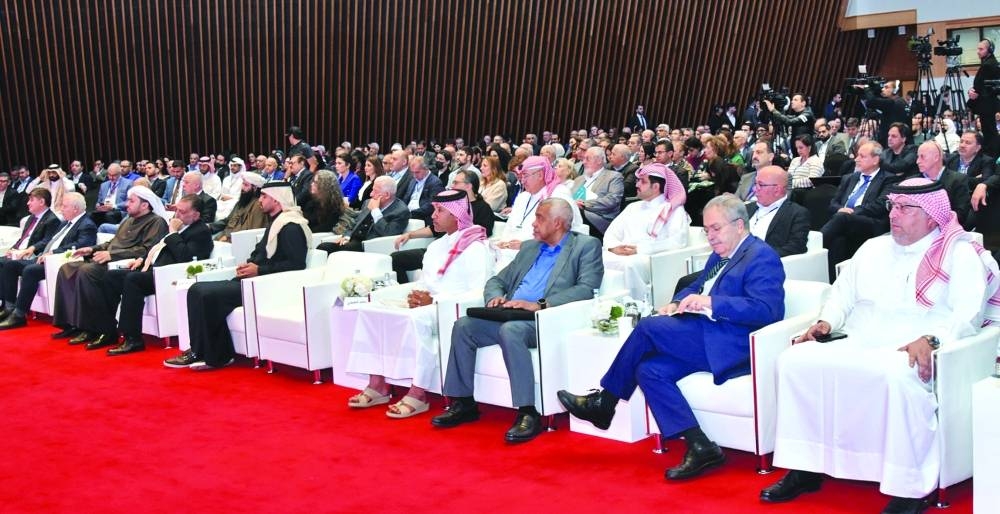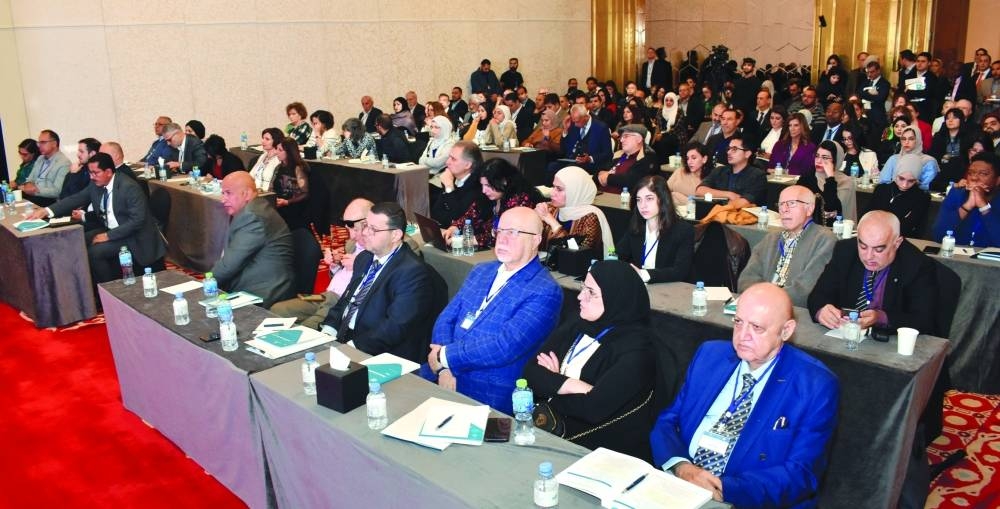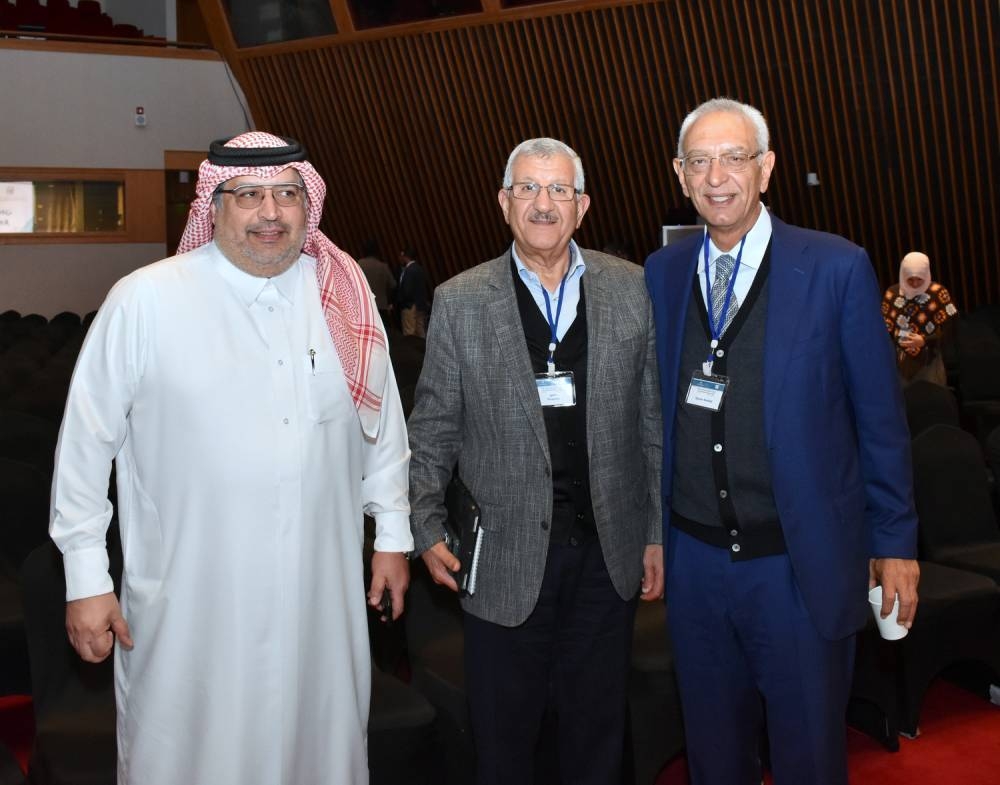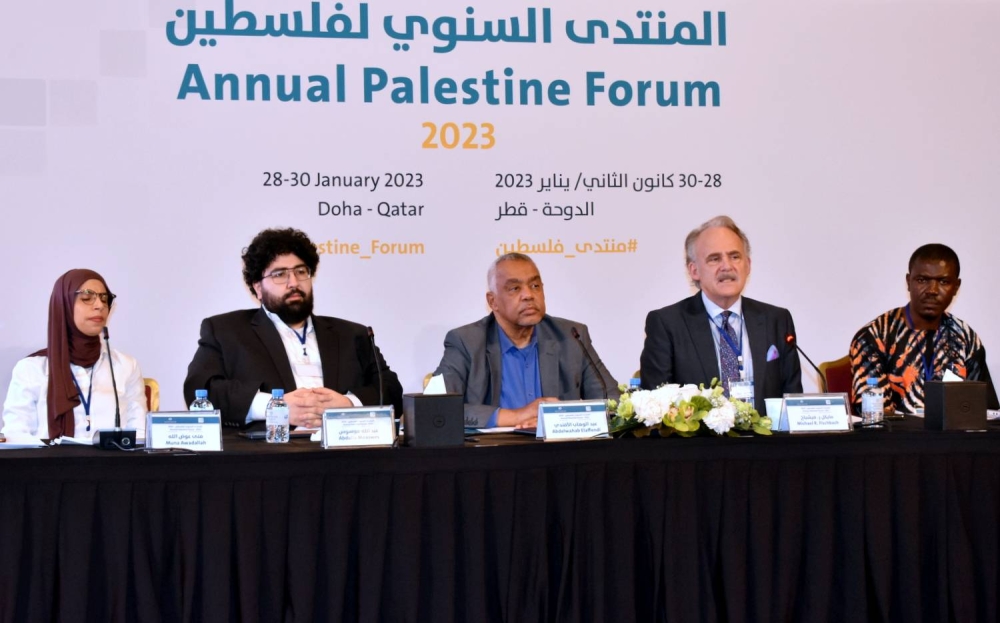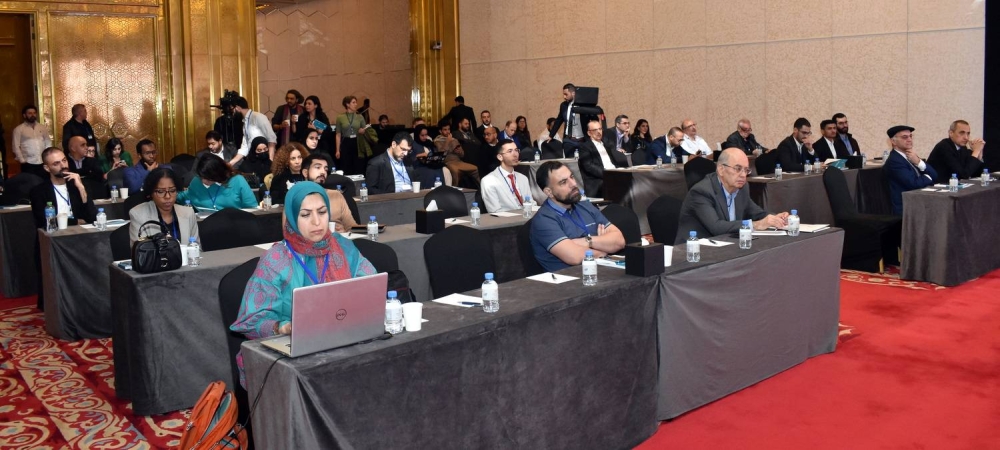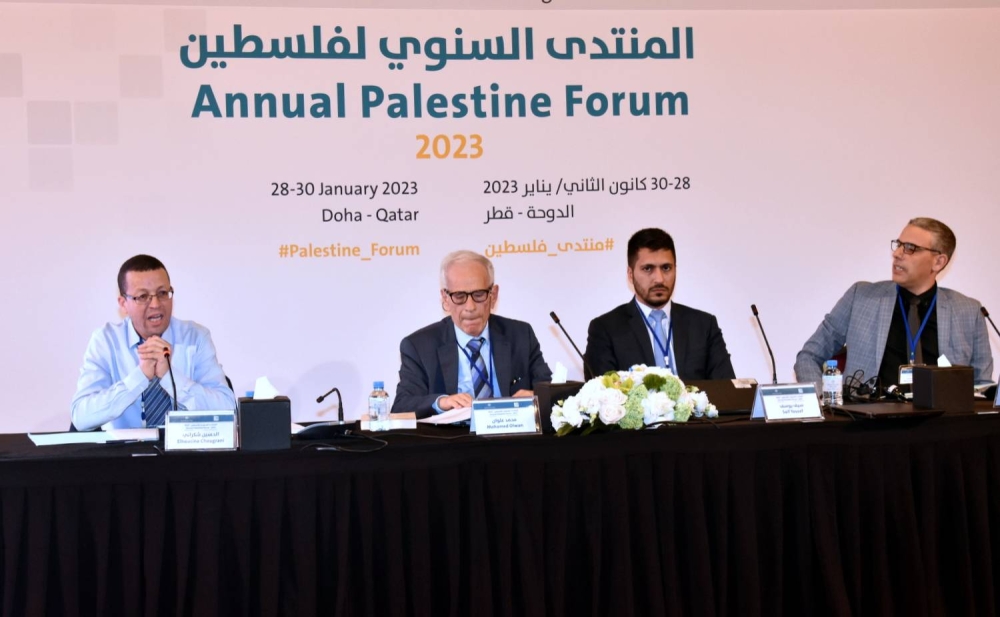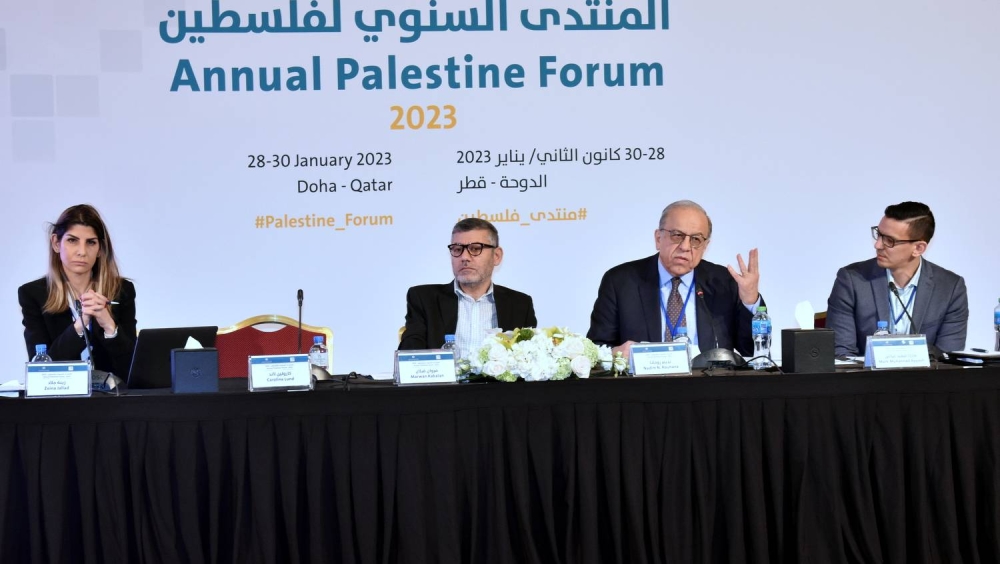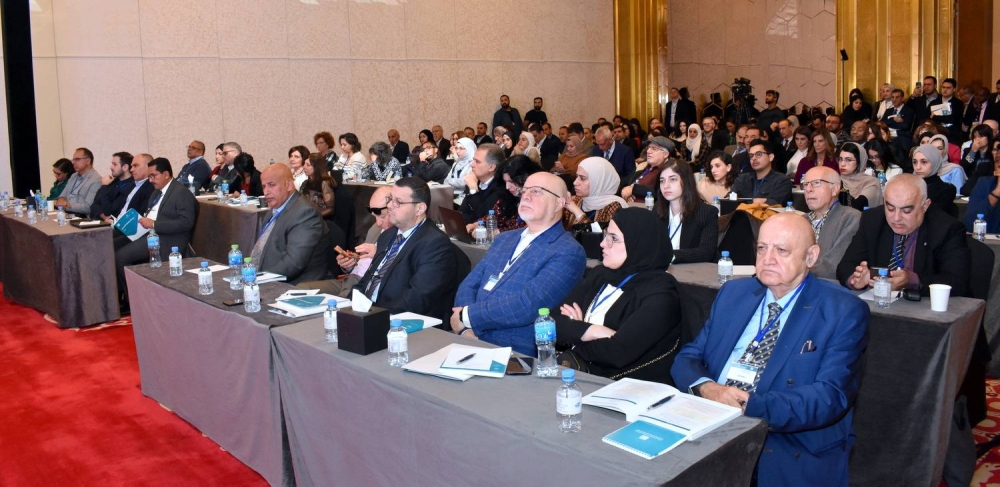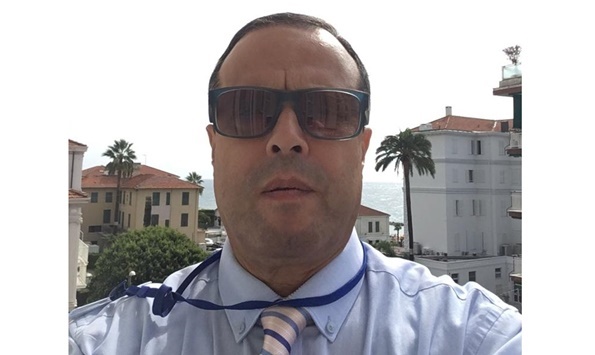The Annual Palestine Forum was launched Saturday in Doha, with a view to providing a general framework that brings together Palestinians from all over the world and a platform for researchers and activists to focus on the Palestinian cause.
Organised by the Arab Center for Research and Policy Studies and the Institute for Palestine Studies, the first session is being held from January 28-30, 2023. In addition to specialised sessions, and a number of workshops related to the Palestinian issue, 62 peer-reviewed scientific papers are slated for the sessions.
The opening session was chaired by Ayat Hamdan, coordinator of the forum and researcher at the Arab Center, in which Tariq Mitri, Chairman of the Board of Trustees of the Institute for Palestine Studies, delivered the opening speech.
Dr Azmi Bishara, Director General of the Arab Center, gave an introductory lecture in which he touched on the relationship between academic discourse on Palestine and influencing decision-making, and the need for a general framework that brings together Palestinians from all over the world. The lecture also dealt with the crisis of the Palestinian national project, and the hoped-for strategy that the Palestinians would engage in.
Bishara reflected on the role of the forum as providing a space that bridges the distance between Palestinians all over the world and that allows researchers and activists from all nationalities who focus on the Palestinian cause to have a rational and responsible discourse about Palestine, its history, and its struggle. The lecture also looked at the crisis of the current framework of the Palestinian national project. In a nutshell, the lecture addressed main questions: What are the main considerations that went into launching the Annual Palestine Forum? How present is the Palestinian cause on official Arab and international agendas? Did the public opinion towards Israel and the Palestinian cause change? How can we understand the crisis of the Palestinian National Liberation movement in light of the changes of the regional context and the politico-geographic fragmentation of the Palestinian people? What is to be done and what are the alternatives that can allow us to overcome this crisis?
This was followed by three parallel sessions, which focused on the specificity of settler colonialism in Palestine and the Palestinian cause in the international context. The session moderated by Marwan Kabalan, Nadim Rouhana, Mark Muhannad Ayyash, Caroline Land, and Zina Jallad discussed the multiple aspects of settler colonialism in the case of Palestine, with regard to citizenship and the right to belong in the Jewish state. The relationship between Zionism, nationalism, and settler colonialism, and Israeli attempts to erase the other and impose dominant narrative.
As for the session chaired by Muhammad Alwan, Al-Hussein Shukrani, Saif Youssef, and Muhammad Al-Wadrasy presented papers centered on Palestine in international law from the perspective of compensation for environmental damage, refugees and the right of return, and the application of international criminal law in Palestine.
In the last session, which was chaired by Abd al-Wahhab al-Afandi, Michael R. Fischbach, Abdullah Musus, Nog Nyue Asanga Von, and Mona Awad Allah referred to the Palestinian issue in the international context from a comparative perspective, specifically with the United States, Kashmir, and Africa.
In the following three parallel sessions, Sanaa Hamoudi chaired a session that dealt with different aspects of security colonial techniques, in which Youssef Mounir, Pietro Stefanini, Nour Arafa, and Areej Sabbagh-Khoury spoke about the Israeli transnational network of repression, the unity of government actions, and programmes to enhance effectiveness, Localism in Counterinsurgency and Anticolonial Resilience in Jerusalem.
In the session titled "Patterns in the Palestinian Resistance" chaired by Salam Al-Kawakibi, Tariq Radi, Khaled Anabtawi, Ahmed Asaad, Mustafa Sheta and Ayman Youssef presented the thoughts on the features of the gift of dignity and the experience of the national theater. Salam Al-Kawakibi presided over this session.
Finally, in a session moderated by Ibrahim Freihat, Ilan Pappe, Bilal Salaymeh, Abdullah Apolloz, and Saja al-Turman discussed the position of Palestine in the academic/knowledge discourse and the future directions of this discourse, and the achievements of the field of Palestinian studies and its future directions.
For his part, Faisal Abdulhameed al-Mudhahka, Editor-in-Chief of the Gulf Times, attended the forum and expressed his support for the first session, wishing the participants success. He said on the sidelines of the forum that “our newspaper has been paying substantial attention to the Palestinian cause for decades, and has been making every effort to advance it and assuming a position worthy of its Arab and international legitimacy through what it publishes on its columns.
He continued: "On the personal level, I grew up adopting the just Palestinian cause and the continuous struggle for it, with our firm belief that the brutal aggression will be defeated and Palestine will inevitably be independent. The Palestinian brothers from the diaspora will return to their land and homes, God willing. This victory is not only for the Palestinians but for all Arabs because it is the cause of the entire Arab nation. It is no secret to you that we strengthen the struggle for Palestine by raising awareness among readers, community members, and residents, and especially inculcating these values in our children so that we inculcate in them the spirit of Arab nationalism and commitment to defend the Palestinian cause without relenting until victory, God willing.”
Two other workshops were held at the end of the first day of the forum. The first dealt with the issue of Palestine in opinion polls, and was chaired by Mahdi Mabrouk. Shibley Telhami spoke about the shift in the American position towards Palestine / Israel, while Muhammad al-Masri spoke about Palestine in Arab public opinion, according to the results of the Arab Index poll, which is implemented by the Arab Center.
In the second workshop, chaired by Ghassan al-Kahlout, Muhammad Abu Nimr, Lord Habash and Tamer Qarmout talked about the Palestinian-Palestinian division and the prospects for reconciliation.
The work of the Palestine Forum will continue until January 30, as indicated in its agenda for the next two days, in a similar manner. The forum also coincides with the proceedings of the "Historical Writing in Palestine" symposium, which is organised by the Ostoor periodical for historical studies.
